6. A Short Film About Killing (1988)
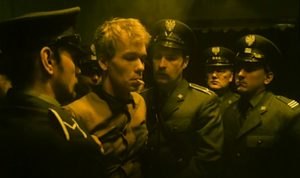
Another film version of an episode from Kieslowski’s Dekalog, A Short Film About Killing was released in 1988 and starred Mirosław Baka, Krzysztof Globisz, and Jan Tesarz. The film won both the Grand Jury Prize and the FIPRESCI Award at the 1988 Cannes Film Festival. The movie is about Jacek, a man who gets into a taxi, takes it to a remote location and murders the taxi driver. He is eventually caught and a trail follows. The film is an epic commentary on the then Polish social classes, law, and politics. It was widely appreciated by critics, Cahiers Du Cinema calling it the most innovatively shot movie of the 1988 Cannes Film Festival.
5. No End (1985)
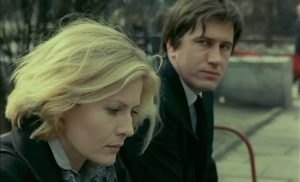
This 1985 political drama film by Kieslowski deals mainly with the state of martial law in Poland after the banning of the trade union organization Solidarity. The movie tells the story of a woman whose husband, a lawyer, has recently passed away leaving her to deal with his clients who come for legal advice. She also has to take care of their son. The movie was warmly received by critics and has a 90% Fresh rating on Rotten Tomatoes.
4. Three Colours: White (1994)
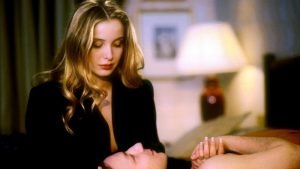
White is the second installment of Kieslowski’s Three Colours trilogy and one of the most exciting films in his oeuvre. Karol is a Polish immigrant to France who loses his home, job, and wife only to return to his native country and build a new life for himself, while never forgetting his old one. This film won Kieslowski the Silver Bear award for best director at the Berlinale and as a genre has been labeled an “anti-comedy” by the former Chicago Sun_Times movie critic Roger Ebert.
3. The Double Life of Veronique (1991)
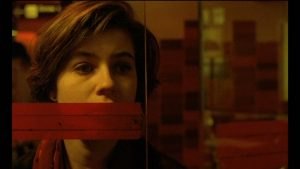
Kieslowski explores ideas of identity, human intuition, and love in his 1991 feature, The Double Life of Veronique where two characters having almost same aspirations in life look identical to each other. Though the two women do not know each other, they share an uncanny bond that transcends the human understanding. The film won the FIPRESCI Prize at the 1991 Cannes Film Festival where lead actress Irene Jacob managed to bag the Best Actress award.
2. Three Colours: Blue (1993)
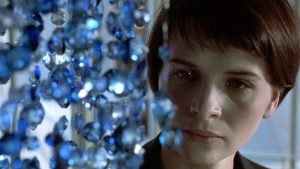
The first of Kieslowski’s Three Colours trilogy, Blue is a profound cinematic experience starring the iconic Juliette Binoche as the widow of a recently dead music composer who tires to finish off the piece of music her husband was writing while also trying to find meaning and joy in her now lonely life. Music plays an important part in the movie as it helps the lead character from not getting succumbed by her grief. Universally acclaimed by critics, Blue won the Best Film, Best Actress, and Best Cinematography awards at the 1993 Venice Film Festival.
1. Three Colours: Red (1994)

Irene Jacob again collaborated with Kieslowski in his third and final installment of the Three Colors trilogy. Here she plays the role of a model who forms a strange bond with an old judge whose dog she accidentally ran over. Before shooting the film, Kieslowski had already announced that this would be his final project. Red was the favorite to bag the Palme d’Or at the 1995 Cannes Film Festival, only to lose it to another masterpiece, Pulp Fiction. However, it remains arguably Kieslowski’s most poignant and profound film and was loved by critics and audiences equally.
Read More: David Fincher Movies

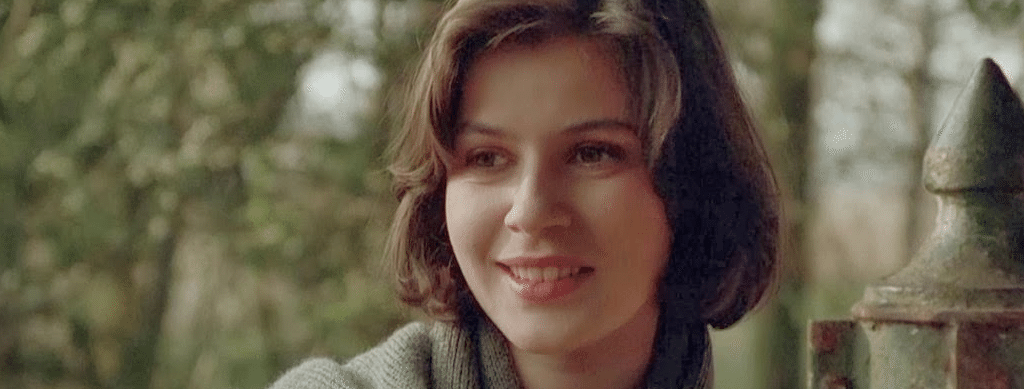
You must be logged in to post a comment.